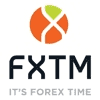Written by Nikola Grozdanovic, FXTM Senior Staff Writer.
Looking back in the history books, one can point to the early modern period in the 17th and 18th centuries for the earliest efforts of regulating the financial markets. The Dutch are usually credited as the pioneers, when they banned short selling in 1610, but perhaps the more popular example is the British Parliament’s passing of the Bubble Act in 1720. Initially poised as a prevention to the various investment schemes caused by the so-called South Sea Bubble, later studies reveal that the main motivator was stopping other financial bubbles from forming and competing with the South Sea Company, a joint-stock enterprise established in 1711. The act itself strictly prohibited other joint-stock ventures from forming unless the Crown approved it.
That was then, and this is now; in the post-modern 21st century, regulatory bodies have a much firmer (and less suspect) grasp on controlling the financial market, while the market itself has grown much more complex. The three main pillars and raisons d’etre of financial regulation, though, have remained basically the same; maintain confidence in the financial system, enhance stability of the financial system, and protect consumers. According to the Eleana Massoura, the head of the compliance department at FXTM, the changes will be challenging, but welcome. “Even after all the major regulatory changes that shifted the financial landscape since the crisis in 2008, traders and investors are still vulnerable to financial pitfalls,” Ms. Massoura explains. “This is in part due to a lack of information, but also because of questionable behaviour by some financial providers. In this day and age of advanced technology, where it’s much easier for financial service companies to pop up online, regulators have a tougher time keeping up”.
Enter the European Securities and Markets Authority (ESMA), a leading regulatory authority with aims of plugging loopholes that still allow corruption to seep through. In 2018, two major initiatives will look to make lives a little tougher for financial firms, all in an effort to stay true to the three major pillars that have governed regulatory proceedings for centuries.
MiFID II
The second Markets Financial Instruments Directive (MiFID II) has already come into effect on 3 January, 2018. It builds on the initial regulation put into practice in November 2017, with the aim to make investing measures more transparent for the two main types of investors (retail and institutional) especially with regards to standardised regulatory disclosures. In summary, it requested that financial firms make all of their transactional and institutional costs and charges known to the client before any commitments are made. Included in this were any management, custodian, fund entry and exit, and advisory levies.
More interestingly, MiFID also required that these figures be presented as a percentage in the client’s local currency. MiFID II, like any good sequel, builds on the strengths of its predecessor and irons out any uncertainties. It has spread a wider net of legislation to include currencies, commodities, and credit products (as well any derivatives) and introduced more rigorous policies for client fund protection.
GDPR
The General Data Protection Regulation is slated for May 25, 2018, and – as the name suggests – will zero in on strengthening data protection, specifically within the European Union. The general aim is twofold: help consumers take back control of their personal information and streamline regulatory features for businesses. Not complying with GDPR will have major consequences, so companies are on high alert to make any necessary changes in accordance to the new initiative.
One of the most glaring and talked-about plans within the new regulation will directly affect financial traders, who will be required to disclose a whole slew of personal and sensitive data before making any transactions. GDPR will, of course, keep this information completely private. The regulation will also dish out heavy fines to institutions who are found to be non-transparent in terms of disclosing data breaches.
Both GDPR and MiFID II are regulatory juggernauts that will have a heavy impact on financial services operating under ESMA. The good news is that the first week in January under MiFID II has seen little-to-no complications, apart from ESMA being forced to delay some implementations due to a lack of information on the so-called ‘dark pools’ (private platforms for investors to trade large volumes without revealing intentions to their counterparts). Ms. Massoura cautions traders not to duck and run; “some of these new rules from MiFID II, and the ones we are anticipating from GDPR, may seem severe but they all have one grand and positive end-goal in mind: to protect the consumer.”
For more information, please visit FXTM at www.forextime.com
Disclaimer: This written/visual material is comprised of personal opinions and ideas. The content should not be construed as containing any type of investment advice and/or a solicitation for any transactions. It does not imply an obligation to purchase investment services, nor does it guarantee or predict future performance. FXTM, its affiliates, agents, directors, officers or employees do not guarantee the accuracy, validity, timeliness or completeness of any information or data made available and assume no liability for any loss arising from any investment based on the same.
Risk Warning: Trading Forex and CFDs involves significant risk and can result in the loss of your invested capital. You should not invest more than you can afford to lose and should ensure that you fully understand the risks involved. Trading leveraged products may not be suitable for all investors. Before trading, please take into consideration your level of experience, investment objectives and seek independent financial advice if necessary. It is the responsibility of the Client to ascertain whether he/she is permitted to use the services of the FXTM brand based on the legal requirements in his/her country of residence. Please read FXTM’s full Risk Disclosure.
